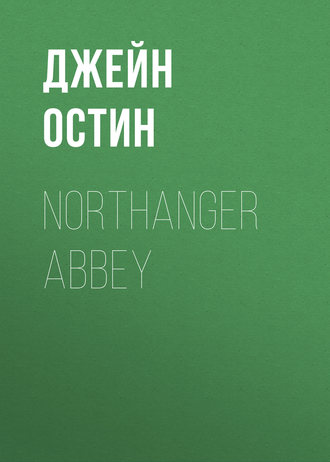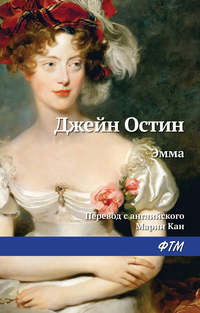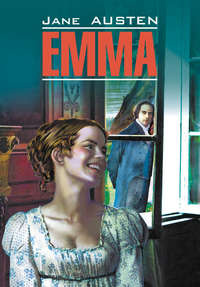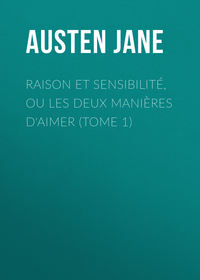 полная версия
полная версияNorthanger Abbey
Miss Tilney’s manners and Henry’s smile soon did away some of her unpleasant feelings; but still she was far from being at ease; nor could the incessant attentions of the general himself entirely reassure her. Nay, perverse as it seemed, she doubted whether she might not have felt less, had she been less attended to. His anxiety for her comfort – his continual solicitations that she would eat, and his often-expressed fears of her seeing nothing to her taste – though never in her life before had she beheld half such variety on a breakfast-table – made it impossible for her to forget for a moment that she was a visitor. She felt utterly unworthy of such respect, and knew not how to reply to it. Her tranquillity was not improved by the general’s impatience for the appearance of his eldest son, nor by the displeasure he expressed at his laziness when Captain Tilney at last came down. She was quite pained by the severity of his father’s reproof, which seemed disproportionate to the offence; and much was her concern increased when she found herself the principal cause of the lecture, and that his tardiness was chiefly resented from being disrespectful to her. This was placing her in a very uncomfortable situation, and she felt great compassion for Captain Tilney, without being able to hope for his goodwill.
He listened to his father in silence, and attempted not any defence, which confirmed her in fearing that the inquietude of his mind, on Isabella’s account, might, by keeping him long sleepless, have been the real cause of his rising late. It was the first time of her being decidedly in his company, and she had hoped to be now able to form her opinion of him; but she scarcely heard his voice while his father remained in the room; and even afterwards, so much were his spirits affected, she could distinguish nothing but these words, in a whisper to Eleanor, “How glad I shall be when you are all off.”
The bustle of going was not pleasant. The clock struck ten while the trunks were carrying down, and the general had fixed to be out of Milsom Street by that hour. His greatcoat, instead of being brought for him to put on directly, was spread out in the curricle in which he was to accompany his son. The middle seat of the chaise was not drawn out, though there were three people to go in it, and his daughter’s maid had so crowded it with parcels that Miss Morland would not have room to sit; and, so much was he influenced by this apprehension when he handed her in, that she had some difficulty in saving her own new writing-desk from being thrown out into the street. At last, however, the door was closed upon the three females, and they set off at the sober pace in which the handsome, highly fed four horses of a gentleman usually perform a journey of thirty miles: such was the distance of Northanger from Bath, to be now divided into two equal stages. Catherine’s spirits revived as they drove from the door; for with Miss Tilney she felt no restraint; and, with the interest of a road entirely new to her, of an abbey before, and a curricle behind, she caught the last view of Bath without any regret, and met with every milestone before she expected it. The tediousness of a two hours’ wait at Petty France, in which there was nothing to be done but to eat without being hungry, and loiter about without anything to see, next followed – and her admiration of the style in which they travelled, of the fashionable chaise and four – postilions handsomely liveried, rising so regularly in their stirrups, and numerous outriders properly mounted, sunk a little under this consequent inconvenience. Had their party been perfectly agreeable, the delay would have been nothing; but General Tilney, though so charming a man, seemed always a check upon his children’s spirits, and scarcely anything was said but by himself; the observation of which, with his discontent at whatever the inn afforded, and his angry impatience at the waiters, made Catherine grow every moment more in awe of him, and appeared to lengthen the two hours into four. At last, however, the order of release was given; and much was Catherine then surprised by the general’s proposal of her taking his place in his son’s curricle for the rest of the journey: “the day was fine, and he was anxious for her seeing as much of the country as possible.”
The remembrance of Mr. Allen’s opinion, respecting young men’s open carriages, made her blush at the mention of such a plan, and her first thought was to decline it; but her second was of greater deference for General Tilney’s judgment; he could not propose anything improper for her; and, in the course of a few minutes, she found herself with Henry in the curricle, as happy a being as ever existed. A very short trial convinced her that a curricle was the prettiest equipage in the world; the chaise and four wheeled off with some grandeur, to be sure, but it was a heavy and troublesome business, and she could not easily forget its having stopped two hours at Petty France. Half the time would have been enough for the curricle, and so nimbly were the light horses disposed to move, that, had not the general chosen to have his own carriage lead the way, they could have passed it with ease in half a minute. But the merit of the curricle did not all belong to the horses; Henry drove so well – so quietly – without making any disturbance, without parading to her, or swearing at them: so different from the only gentleman-coachman whom it was in her power to compare him with! And then his hat sat so well, and the innumerable capes of his greatcoat looked so becomingly important! To be driven by him, next to being dancing with him, was certainly the greatest happiness in the world. In addition to every other delight, she had now that of listening to her own praise; of being thanked at least, on his sister’s account, for her kindness in thus becoming her visitor; of hearing it ranked as real friendship, and described as creating real gratitude. His sister, he said, was uncomfortably circumstanced – she had no female companion – and, in the frequent absence of her father, was sometimes without any companion at all.
“But how can that be?” said Catherine. “Are not you with her?”
“Northanger is not more than half my home; I have an establishment at my own house in Woodston, which is nearly twenty miles from my father’s, and some of my time is necessarily spent there.”
“How sorry you must be for that!”
“I am always sorry to leave Eleanor.”
“Yes; but besides your affection for her, you must be so fond of the abbey! After being used to such a home as the abbey, an ordinary parsonage-house must be very disagreeable.”
He smiled, and said, “You have formed a very favourable idea of the abbey.”
“To be sure, I have. Is not it a fine old place, just like what one reads about?”
“And are you prepared to encounter all the horrors that a building such as ‘what one reads about’ may produce? Have you a stout heart? Nerves fit for sliding panels and tapestry?”
“Oh! yes – I do not think I should be easily frightened, because there would be so many people in the house – and besides, it has never been uninhabited and left deserted for years, and then the family come back to it unawares, without giving any notice, as generally happens.”
“No, certainly. We shall not have to explore our way into a hall dimly lighted by the expiring embers of a wood fire – nor be obliged to spread our beds on the floor of a room without windows, doors, or furniture. But you must be aware that when a young lady is (by whatever means) introduced into a dwelling of this kind, she is always lodged apart from the rest of the family. While they snugly repair to their own end of the house, she is formally conducted by Dorothy, the ancient housekeeper, up a different staircase, and along many gloomy passages, into an apartment never used since some cousin or kin died in it about twenty years before. Can you stand such a ceremony as this? Will not your mind misgive you when you find yourself in this gloomy chamber – too lofty and extensive for you, with only the feeble rays of a single lamp to take in its size – its walls hung with tapestry exhibiting figures as large as life, and the bed, of dark green stuff or purple velvet, presenting even a funereal appearance? Will not your heart sink within you?”
“Oh! But this will not happen to me, I am sure.”
“How fearfully will you examine the furniture of your apartment! And what will you discern? Not tables, toilettes, wardrobes, or drawers, but on one side perhaps the remains of a broken lute, on the other a ponderous chest which no efforts can open, and over the fireplace the portrait of some handsome warrior, whose features will so incomprehensibly strike you, that you will not be able to withdraw your eyes from it. Dorothy, meanwhile, no less struck by your appearance, gazes on you in great agitation, and drops a few unintelligible hints. To raise your spirits, moreover, she gives you reason to suppose that the part of the abbey you inhabit is undoubtedly haunted, and informs you that you will not have a single domestic within call. With this parting cordial she curtsies off – you listen to the sound of her receding footsteps as long as the last echo can reach you – and when, with fainting spirits, you attempt to fasten your door, you discover, with increased alarm, that it has no lock.”
“Oh! Mr. Tilney, how frightful! This is just like a book! But it cannot really happen to me. I am sure your housekeeper is not really Dorothy. Well, what then?”
“Nothing further to alarm perhaps may occur the first night. After surmounting your unconquerable horror of the bed, you will retire to rest, and get a few hours’ unquiet slumber. But on the second, or at farthest the third night after your arrival, you will probably have a violent storm. Peals of thunder so loud as to seem to shake the edifice to its foundation will roll round the neighbouring mountains – and during the frightful gusts of wind which accompany it, you will probably think you discern (for your lamp is not extinguished) one part of the hanging more violently agitated than the rest. Unable of course to repress your curiosity in so favourable a moment for indulging it, you will instantly arise, and throwing your dressing-gown around you, proceed to examine this mystery. After a very short search, you will discover a division in the tapestry so artfully constructed as to defy the minutest inspection, and on opening it, a door will immediately appear – which door, being only secured by massy bars and a padlock, you will, after a few efforts, succeed in opening – and, with your lamp in your hand, will pass through it into a small vaulted room.”
“No, indeed; I should be too much frightened to do any such thing.”
“What! Not when Dorothy has given you to understand that there is a secret subterraneous communication between your apartment and the chapel of St. Anthony, scarcely two miles off? Could you shrink from so simple an adventure? No, no, you will proceed into this small vaulted room, and through this into several others, without perceiving anything very remarkable in either. In one perhaps there may be a dagger, in another a few drops of blood, and in a third the remains of some instrument of torture; but there being nothing in all this out of the common way, and your lamp being nearly exhausted, you will return towards your own apartment. In repassing through the small vaulted room, however, your eyes will be attracted towards a large, old-fashioned cabinet of ebony and gold, which, though narrowly examining the furniture before, you had passed unnoticed. Impelled by an irresistible presentiment, you will eagerly advance to it, unlock its folding doors, and search into every drawer – but for some time without discovering anything of importance – perhaps nothing but a considerable hoard of diamonds. At last, however, by touching a secret spring, an inner compartment will open – a roll of paper appears – you seize it – it contains many sheets of manuscript – you hasten with the precious treasure into your own chamber, but scarcely have you been able to decipher ‘Oh! Thou – whomsoever thou mayst be, into whose hands these memoirs of the wretched Matilda may fall’ – when your lamp suddenly expires in the socket, and leaves you in total darkness.”
“Oh! No, no – do not say so. Well, go on.”
But Henry was too much amused by the interest he had raised to be able to carry it farther; he could no longer command solemnity either of subject or voice, and was obliged to entreat her to use her own fancy in the perusal of Matilda’s woes. Catherine, recollecting herself, grew ashamed of her eagerness, and began earnestly to assure him that her attention had been fixed without the smallest apprehension of really meeting with what he related. “Miss Tilney, she was sure, would never put her into such a chamber as he had described! She was not at all afraid.”
As they drew near the end of their journey, her impatience for a sight of the abbey – for some time suspended by his conversation on subjects very different – returned in full force, and every bend in the road was expected with solemn awe to afford a glimpse of its massy walls of grey stone, rising amidst a grove of ancient oaks, with the last beams of the sun playing in beautiful splendour on its high Gothic windows. But so low did the building stand, that she found herself passing through the great gates of the lodge into the very grounds of Northanger, without having discerned even an antique chimney.
She knew not that she had any right to be surprised, but there was a something in this mode of approach which she certainly had not expected. To pass between lodges of a modern appearance, to find herself with such ease in the very precincts of the abbey, and driven so rapidly along a smooth, level road of fine gravel, without obstacle, alarm, or solemnity of any kind, struck her as odd and inconsistent. She was not long at leisure, however, for such considerations. A sudden scud of rain, driving full in her face, made it impossible for her to observe anything further, and fixed all her thoughts on the welfare of her new straw bonnet; and she was actually under the abbey walls, was springing, with Henry’s assistance, from the carriage, was beneath the shelter of the old porch, and had even passed on to the hall, where her friend and the general were waiting to welcome her, without feeling one awful foreboding of future misery to herself, or one moment’s suspicion of any past scenes of horror being acted within the solemn edifice. The breeze had not seemed to waft the sighs of the murdered to her; it had wafted nothing worse than a thick mizzling rain; and having given a good shake to her habit, she was ready to be shown into the common drawing-room, and capable of considering where she was.
An abbey! Yes, it was delightful to be really in an abbey! But she doubted, as she looked round the room, whether anything within her observation would have given her the consciousness. The furniture was in all the profusion and elegance of modern taste. The fireplace, where she had expected the ample width and ponderous carving of former times, was contracted to a Rumford, with slabs of plain though handsome marble, and ornaments over it of the prettiest English china. The windows, to which she looked with peculiar dependence, from having heard the general talk of his preserving them in their Gothic form with reverential care, were yet less what her fancy had portrayed. To be sure, the pointed arch was preserved – the form of them was Gothic – they might be even casements – but every pane was so large, so clear, so light! To an imagination which had hoped for the smallest divisions, and the heaviest stone-work, for painted glass, dirt, and cobwebs, the difference was very distressing.
The general, perceiving how her eye was employed, began to talk of the smallness of the room and simplicity of the furniture, where everything, being for daily use, pretended only to comfort, etc.; flattering himself, however, that there were some apartments in the Abbey not unworthy her notice – and was proceeding to mention the costly gilding of one in particular, when, taking out his watch, he stopped short to pronounce it with surprise within twenty minutes of five! This seemed the word of separation, and Catherine found herself hurried away by Miss Tilney in such a manner as convinced her that the strictest punctuality to the family hours would be expected at Northanger.
Returning through the large and lofty hall, they ascended a broad staircase of shining oak, which, after many flights and many landing-places, brought them upon a long, wide gallery. On one side it had a range of doors, and it was lighted on the other by windows which Catherine had only time to discover looked into a quadrangle, before Miss Tilney led the way into a chamber, and scarcely staying to hope she would find it comfortable, left her with an anxious entreaty that she would make as little alteration as possible in her dress.
CHAPTER 21
A moment’s glance was enough to satisfy Catherine that her apartment was very unlike the one which Henry had endeavoured to alarm her by the description of. It was by no means unreasonably large, and contained neither tapestry nor velvet. The walls were papered, the floor was carpeted; the windows were neither less perfect nor more dim than those of the drawing-room below; the furniture, though not of the latest fashion, was handsome and comfortable, and the air of the room altogether far from uncheerful. Her heart instantaneously at ease on this point, she resolved to lose no time in particular examination of anything, as she greatly dreaded disobliging the general by any delay. Her habit therefore was thrown off with all possible haste, and she was preparing to unpin the linen package, which the chaise-seat had conveyed for her immediate accommodation, when her eye suddenly fell on a large high chest, standing back in a deep recess on one side of the fireplace. The sight of it made her start; and, forgetting everything else, she stood gazing on it in motionless wonder, while these thoughts crossed her:
“This is strange indeed! I did not expect such a sight as this! An immense heavy chest! What can it hold? Why should it be placed here? Pushed back too, as if meant to be out of sight! I will look into it – cost me what it may, I will look into it – and directly too – by daylight. If I stay till evening my candle may go out.” She advanced and examined it closely: it was of cedar, curiously inlaid with some darker wood, and raised, about a foot from the ground, on a carved stand of the same. The lock was silver, though tarnished from age; at each end were the imperfect remains of handles also of silver, broken perhaps prematurely by some strange violence; and, on the centre of the lid, was a mysterious cipher, in the same metal. Catherine bent over it intently, but without being able to distinguish anything with certainty. She could not, in whatever direction she took it, believe the last letter to be a T; and yet that it should be anything else in that house was a circumstance to raise no common degree of astonishment. If not originally theirs, by what strange events could it have fallen into the Tilney family?
Her fearful curiosity was every moment growing greater; and seizing, with trembling hands, the hasp of the lock, she resolved at all hazards to satisfy herself at least as to its contents. With difficulty, for something seemed to resist her efforts, she raised the lid a few inches; but at that moment a sudden knocking at the door of the room made her, starting, quit her hold, and the lid closed with alarming violence. This ill-timed intruder was Miss Tilney’s maid, sent by her mistress to be of use to Miss Morland; and though Catherine immediately dismissed her, it recalled her to the sense of what she ought to be doing, and forced her, in spite of her anxious desire to penetrate this mystery, to proceed in her dressing without further delay. Her progress was not quick, for her thoughts and her eyes were still bent on the object so well calculated to interest and alarm; and though she dared not waste a moment upon a second attempt, she could not remain many paces from the chest. At length, however, having slipped one arm into her gown, her toilette seemed so nearly finished that the impatience of her curiosity might safely be indulged. One moment surely might be spared; and, so desperate should be the exertion of her strength, that, unless secured by supernatural means, the lid in one moment should be thrown back. With this spirit she sprang forward, and her confidence did not deceive her. Her resolute effort threw back the lid, and gave to her astonished eyes the view of a white cotton counterpane, properly folded, reposing at one end of the chest in undisputed possession!
She was gazing on it with the first blush of surprise when Miss Tilney, anxious for her friend’s being ready, entered the room, and to the rising shame of having harboured for some minutes an absurd expectation, was then added the shame of being caught in so idle a search. “That is a curious old chest, is not it?” said Miss Tilney, as Catherine hastily closed it and turned away to the glass. “It is impossible to say how many generations it has been here. How it came to be first put in this room I know not, but I have not had it moved, because I thought it might sometimes be of use in holding hats and bonnets. The worst of it is that its weight makes it difficult to open. In that corner, however, it is at least out of the way.”
Catherine had no leisure for speech, being at once blushing, tying her gown, and forming wise resolutions with the most violent dispatch. Miss Tilney gently hinted her fear of being late; and in half a minute they ran downstairs together, in an alarm not wholly unfounded, for General Tilney was pacing the drawing-room, his watch in his hand, and having, on the very instant of their entering, pulled the bell with violence, ordered “Dinner to be on table directly!”
Catherine trembled at the emphasis with which he spoke, and sat pale and breathless, in a most humble mood, concerned for his children, and detesting old chests; and the general, recovering his politeness as he looked at her, spent the rest of his time in scolding his daughter for so foolishly hurrying her fair friend, who was absolutely out of breath from haste, when there was not the least occasion for hurry in the world: but Catherine could not at all get over the double distress of having involved her friend in a lecture and been a great simpleton herself, till they were happily seated at the dinner-table, when the general’s complacent smiles, and a good appetite of her own, restored her to peace. The dining-parlour was a noble room, suitable in its dimensions to a much larger drawing-room than the one in common use, and fitted up in a style of luxury and expense which was almost lost on the unpractised eye of Catherine, who saw little more than its spaciousness and the number of their attendants. Of the former, she spoke aloud her admiration; and the general, with a very gracious countenance, acknowledged that it was by no means an ill-sized room, and further confessed that, though as careless on such subjects as most people, he did look upon a tolerably large eating-room as one of the necessaries of life; he supposed, however, “that she must have been used to much better-sized apartments at Mr. Allen’s?”
“No, indeed,” was Catherine’s honest assurance; “Mr. Allen’s dining-parlour was not more than half as large,” and she had never seen so large a room as this in her life. The general’s good humour increased. Why, as he had such rooms, he thought it would be simple not to make use of them; but, upon his honour, he believed there might be more comfort in rooms of only half their size. Mr. Allen’s house, he was sure, must be exactly of the true size for rational happiness.
The evening passed without any further disturbance, and, in the occasional absence of General Tilney, with much positive cheerfulness. It was only in his presence that Catherine felt the smallest fatigue from her journey; and even then, even in moments of languor or restraint, a sense of general happiness preponderated, and she could think of her friends in Bath without one wish of being with them.
The night was stormy; the wind had been rising at intervals the whole afternoon; and by the time the party broke up, it blew and rained violently. Catherine, as she crossed the hall, listened to the tempest with sensations of awe; and, when she heard it rage round a corner of the ancient building and close with sudden fury a distant door, felt for the first time that she was really in an abbey. Yes, these were characteristic sounds; they brought to her recollection a countless variety of dreadful situations and horrid scenes, which such buildings had witnessed, and such storms ushered in; and most heartily did she rejoice in the happier circumstances attending her entrance within walls so solemn! She had nothing to dread from midnight assassins or drunken gallants. Henry had certainly been only in jest in what he had told her that morning. In a house so furnished, and so guarded, she could have nothing to explore or to suffer, and might go to her bedroom as securely as if it had been her own chamber at Fullerton. Thus wisely fortifying her mind, as she proceeded upstairs, she was enabled, especially on perceiving that Miss Tilney slept only two doors from her, to enter her room with a tolerably stout heart; and her spirits were immediately assisted by the cheerful blaze of a wood fire. “How much better is this,” said she, as she walked to the fender – “how much better to find a fire ready lit, than to have to wait shivering in the cold till all the family are in bed, as so many poor girls have been obliged to do, and then to have a faithful old servant frightening one by coming in with a faggot! How glad I am that Northanger is what it is! If it had been like some other places, I do not know that, in such a night as this, I could have answered for my courage: but now, to be sure, there is nothing to alarm one.”








![Love and Freindship [sic]](/covers_200/25019987.jpg)
